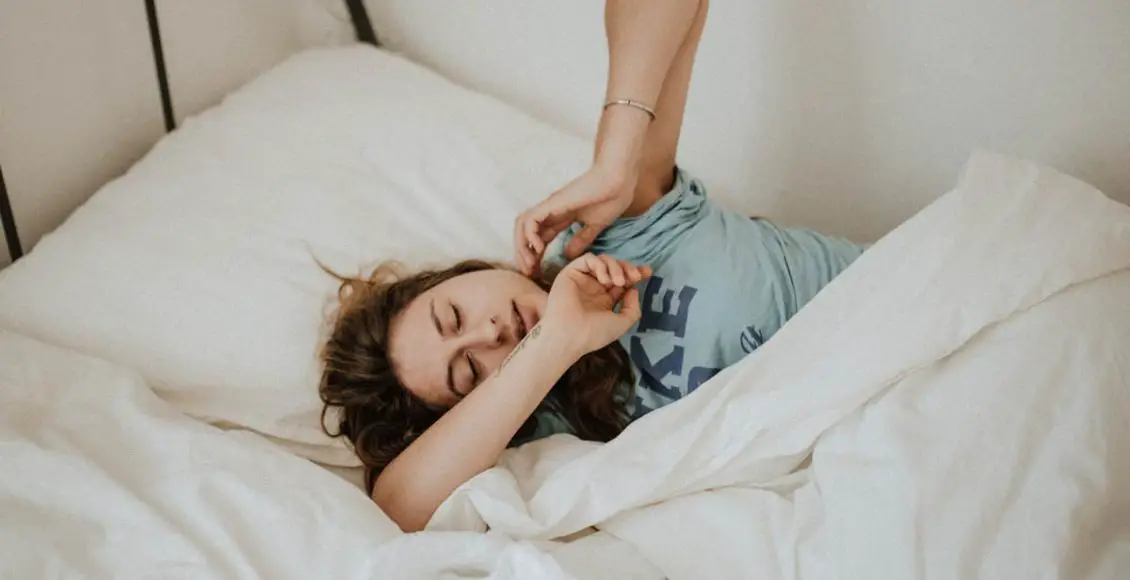Does falling asleep take you hours? Do you happen to toss and turn the whole night up until the sun rises?
It’s insomnia, darling. And we all know what it’s like.
But I’m here to help you. Here are 5 proven ways to deal with sleepless nights, which have a long-term effect. You’re welcome!
#1 Train Yourself to Follow a Regular Schedule
As human beings are creatures of habit, the enemy preventing you from sound sleep might be inconsistency. Imagine what kind of stress you put on your organism when you go to bed at 1 a.m., next day sleep in until the lunchtime, then stay up even later than 1 a.m., and then force yourself to wake up before dawn. It’s crazy! And still, it’s how many people live.
But the truth is, your body and brain will be able to relax during the night much better if you get used to going to bed and waking up at approximately the same time every day.
And yes, even on weekends!
It doesn’t need to be something fantastic like drifting off at 10 p.m. and getting up at 6 a.m. Let it be 1 a.m. and 7 a.m for a start. But same hours. Every single day.
It only seems impossible. You’ll get used to that quickly, believe me.
#2 Create the Right Environment
Experts say that the best temperature for sleep is between 60 and 67 degrees. So, try to keep your bedroom in this range, and chances are you will fall asleep faster and won’t wake up until the morning.
The right environment also means no noise. So, if you think trying to fall asleep to your favorite series is a good idea, you’re wrong.
“A quick tip: If the area you live in isn’t quiet, consider getting earplugs.”
Another element of a healthy sleep environment is darkness. Since melatonin is produced at night — meaning when it’s dark — sleeping in a dark room is advised. Researchers say any light can suppress the production of this hormone, which will result in troubles falling asleep and lower sleep quality overall.
#3 Take Melatonin

Melatonin is a hormone produced by your body to regulate the sleep cycle. In young and healthy people, it’s natural production should be enough to not experience any sleep issues. However, older individuals or people with some health issues might suffer from insomnia exactly because of the lack of this hormone.
That’s when melatonin supplements come in.
They are widely available as tablets, capsules, or liquids. And the choice of manufacturers is pretty wide, so you’ll definitely find a product you’ll be satisfied with.
But that’s not it. Although taking melatonin supplements won’t interfere with your body’s ability to produce its own melatonin, and although it doesn’t cause addictions, you should be careful with the dosage of melatonin.
And here’s the kicker:
There’s no universally accepted dosage that why it is easy to overdose on melatonin, according to Happysleepyhead.com.
That’s why consulting your doctor is advised so that he or she would prescribe you the right dose based on the individual characteristics of your organism, as well as the reason you want to take this hormone.
“If you have troubles falling back to sleep once you wake up in the middle of the night, steer clear of any liquids two hours before the bedtime. Thus, you reduce the chances of waking up to go to the restroom and never fall back asleep that night.”
The amounts of melatonin commonly prescribed range from 0.3 mg to 10 mg. Some people take more and don’t overdose, while others might experience the side effects even when taking amounts within that range. So, let me quickly inform you about the possible side effects:
- lower heartbeat and blood pressure;
- apathy;
- lack of coordination;
- dizziness and headache;
- and more.
#4 Avoid Stimulation Before Bed
Another common reason for sleeplessness is excessive stimulation before going to bed. If you want to fall asleep faster and sleep longer, you should avoid anything that can cause excitement, avidness, impatience, anxiety, panic, and similar emotions. Just a few examples:
- don’t get into a fight with your partner;
- don’t solve any work-related problems;
- don’t leave important tasks unfinished.
Also, avoid consuming caffeine and limit your screen time.
The ideal pastime options before bed that don’t stimulate your senses include reading, meditating, painting, talking with your kids/parents/partner, bathing, doing spa activities, planning, etc. Be careful with the latter, though, or you might end up feeling too excited about your plans.
“Some people drink a bit of alcohol before going to bed in order to fall asleep faster and easier. While this does make sense, as alcohol helps you relaxed, you should know that it has the potential to wake you up once your organism digests it.”
Read more: The lack of sleep is making you way more than Grumpy
#5 Get More Active During the Day

If sleeplessness has become part of your regular life, you should start with understanding what causes it. One of the simplest reasons can be the energy that you didn’t manage to waste
during the day.
Each of you had those super busy days when you were on your last legs upon reaching your bed.
What? Insomnia? I don’t know what you’re talking… Zzz.
That usually happens when you have many activities during the day that require a lot of physical energy. And what if you don’t? What if you have a sedentary job and pretty lazy leisure time?
Then, you will still be active and full of energy by the end of the day, right?
While you might have no opportunity to change anything about your job, you’re free to decide how to spend the rest of your time. So, just get more active — go out more often, start jogging or riding a bicycle, explore the neighborhood, travel, etc.


